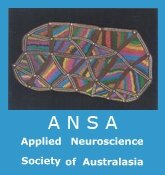|
ContributorsUpcoming Live WebinarsPractice of PsychotherapyThe Internet in PracticeGroup TherapyJungian AnalysisThe Conversational ModelSelf PsychologyNotions of SelfBrief Interpersonal Therapies Dialectical Behaviour TherapyCognitive Behavioural TherapyAccept. & Commit. TherapyProcess Oriented PsychologyNarrative TherapyPositive PsychotherapyGestalt TherapyReality Therapy PsychoanalysisCounsellingAttachmentFamily TherapyCouple Therapy Child and AdolescentEMDRBody Oriented TherapiesTranspersonal PsychotherapyAdvances in NeurosciencePsychopharmacologyGeneral Practice PhenomenologyAppreciative InquiryDreams and DreamingShamanic HealingArt TherapyMindfulnessYoga and TherapyExistential TherapyPsychosophyRefugee TraumaCross-Cultural ApproachesIndigenous CultureTestimonial TherapyReligion and SpiritualityKinesiologyAcupunctureExercise and Mental HealthHospitalisationNurses & Mental HealthSocial WorkForensic psychologyPatient & Client PerspectiveEthicsPhilosophy and the mindTributesEditors ReviewResources
|
|
|||||||||||||||||||||||||||||||||||||||||||||||||||||||||||||||||||||||||||||||||||||||||||||||||||||||||||||||||||||||||||||||||||||||||||||||||||||||||||||||||||||||||||||||||||||||||||||||||||||||||||||||||||||||||||||||||||












